Frank Herbert’s sci-fi novel Dune has often been cited as “unfilmable”. David Lynch attempted a cinematic iteration in 1984 to rather mixed results, while Syfy’s 2000 miniseries hasn’t aged too well, especially when compared with more recent TV “epics”. One of the main challenges in adapting the novel has always been to find a middle ground in appealing to fans of the book’s complex narrative, characters, and world-building and catering to an audience more interested in action and spectacle. That’s not to say that Denis Villeneuve’s Dune finds the perfect balance – it’s definitely more in the former category, and by no means an action-packed extravaganza (although this is hardly surprising given that the director’s filmography includes the thoughtful Blade Runner 2049 and meditative Arrival). Dune is a hugely ambitious and complex sci-fi tale handled with expertise on every single level that demands to be witnessed on the biggest screen with the best speakers possible.
The story is set years into the future on the desert planet of Arrakis, home to the Fremen and occupied by the Harkonnen family for decades. The Emperor of the known universe relinquishes the Harkonnen’s control to the Atreides family, previously rulers of the rainy world of Caladan, who begin to take control. But Duke Leto Atreides (Oscar Isaac) is aware that this is a trap, and a means of starting a war between the Harkonnens and Atreides, and so endeavours to build an alliance with the Fremen, led by Stilgar (Javier Bardem) to defend their house and maintain control over Dune, and over the spice mined there – the most valuable substance in the universe. The Duke’s son Paul (Timothée Chalamet), meanwhile, has been seeing visions of Arrakis – and of the future – and tries to discover what it all means with the help of his mother (Rebecca Ferguson). Whatever happens next, the entire universe hangs in the balance…
While Dune may have a rather complex premise, the main narrative hits many familiar beats of the hero’s journey, following Paul’s growth not only from adolescence to adulthood, but also into a heroic figure as someone trying to save his house and prevent a universal war. What sets Dune apart from something like Star Wars is the complexity of its world-building, creating this future universe with a level of depth rarely seen in films. There’s clear colonial influences; the Atreides’ home-world of Caladan is grey, damp and green (much like Britain), with the characters journeying to the remote world of Arrakis as a hot, sunny, “foreign” environment. We spend little time on Caladan itself – just enough to juxtapose it as much as possible with Arrakis – but Dune itself is brought to life perfectly. The desert locations look stunning, while the shots of Arrakeen showcase a brutalist architecture intent on blocking out the harsh sunlight of the day. Inside the city, the production design is intricately detailed, complete with sandworm carvings on the wall and windows situated so as to let in just enough light to see, but not so much to be overbearing; Arrakis isn’t the Atreides’ home, and we always feel that. This combination of set design and lighting is utterly superb, perfectly suiting Greig Fraser‘s more naturalistic approach to cinematography.
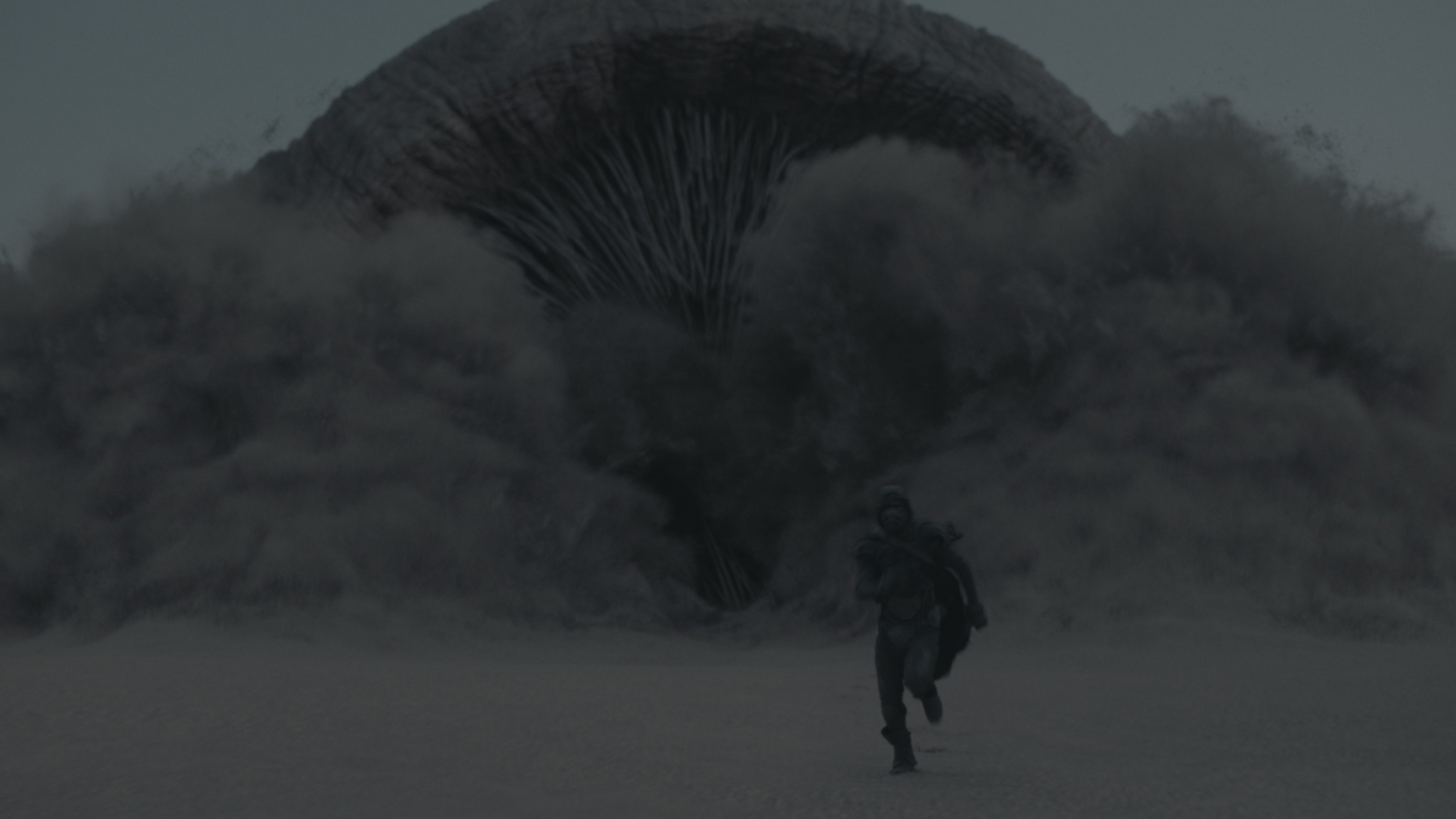
A lot of the scenes on Arrakis have been captured on IMAX cameras – and look absolutely stunning on a huge screen. There’s never a sense that the worlds showcased in Dune are in any way fake; they feel as real and authentic as Middle-Earth does in The Lord of the Rings trilogy (arguably the best point of cinematic comparison). Director Denis Villeneuve handles each scene with a sense of care and grace, focusing not only on the characters and their reactions but showcasing the sheer scale of everything.
Dune also features a very impressive cast, with Timothée Chalamet leading the charge as the teenage Paul Atreides; his version of the character feels more brooding and contemplative, perhaps more like an actual teenager than a stock hero character. Rebecca Ferguson juggles the duality within Lady Jessica (Paul’s mother) with ease, while Oscar Isaac makes Duke Leto more likable – even with his lack of screentime. It’s ultimately Jason Momoa who manages to bring the film down to earth in his portrayal of Duncan Idaho, a more relaxed Uncle figure to Paul and a fierce fighter, while Stellan Skarsgård’s Baron Harkonnen is a truly repulsive villain, brought brilliantly to life with incredible prosthetics work. If there’s a weak link in the casting, it’s with Javier Bardem as Stilgar – a very good performance, but a curious choice of actor given the clear real-world influences on the Fremen. Oh, and those hoping to see a lot of Zendaya as Chani will be very disappointed…
If there’s an issue with Dune, it’s that it’s actually just Dune: Part One, and feels incomplete. It may be two-and-a-half hours long, but the ending feels quite sudden, like a cliffhanger at the end of an episode of a Dune TV series. If Warner Bros don’t make a Dune: Part Two, it’s hard to see this film working as a standalone piece. Paul’s arc doesn’t reach its conclusion, the story feels half-told and a reasonable portion of the film is building up to future events that will (presumably) happen in a hypothetical second instalment. Ultimately, it’s up to audiences to show up to Dune: Part One to guarantee a Part Two – which is apparently being written, but with no official greenlight as of yet. I really hope we get to see what happens next though, especially of this first part is anything to go by.

Dune is best experienced in IMAX and has clearly been designed for this immersive cinematic experience by director Denis Villeneuve. Over an hour of the film has been captured with digital IMAX cameras, including the huge space shots and extended sequences on Arrakis; the picture expands by 26% to fill the entire screen, meaning that those sandworms look even bigger. Hans Zimmer’s experimental, atmospheric score and the expert sound design are so much better with IMAX’s precision sound system, further adding to the level of immersion. I was majorly impressed by IMAX’s preview earlier this year, and seeing the full film this way was well worth the wait. Having now seen Dune on both a standard cinema screen and in IMAX, I think IMAX is definitely the way to go for a film on this scale.
Overall, Dune (or should I say Dune: Part One?) is easily the most impressive blockbuster of the year so far, a movie with immense scale and spectacular production values, all expertly helmed by Denis Villeneuve – arguably one of the best filmmakers working today. Warner Bros would be foolish not to greenlight a second instalment and allow this creative team to conclude the story in a similarly brilliant fashion. Until then, I’ll probably just have to re-watch Part One over and over again to tide myself over…


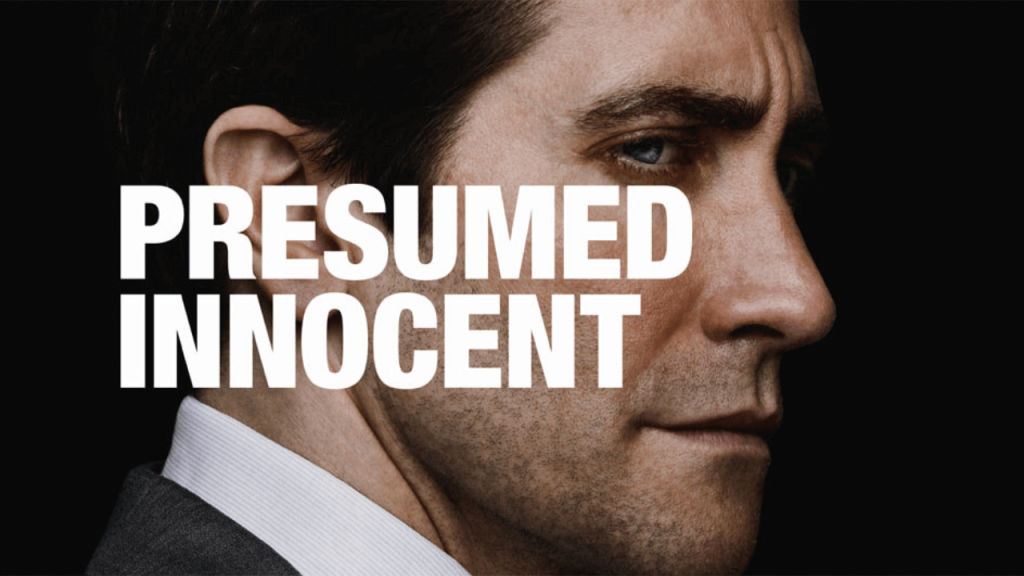

![Army Of Shadows Blu-ray review: Dir. Jean Pierre Melville [Vintage World Cinema]](https://criticalpopcorn.com/wp-content/uploads/2024/05/image-14.png?w=1024)
![Doctor Who: Pest Control and The Forever Trap (6LP Red & Yellow Vinyl) review [Demon Records]](https://criticalpopcorn.com/wp-content/uploads/2024/05/3f35d7aa-1aa8-406e-89ac-e773b1646e09.__cr00970600_pt0_sx970_v1___.jpg?w=970)



![Building the Batmobile Tumbler [Hachette Partworks: Issues 53 – 58]](https://criticalpopcorn.com/wp-content/uploads/2024/06/wp-17179408424882484652437929488722.jpg?w=1024)

Post your thoughts